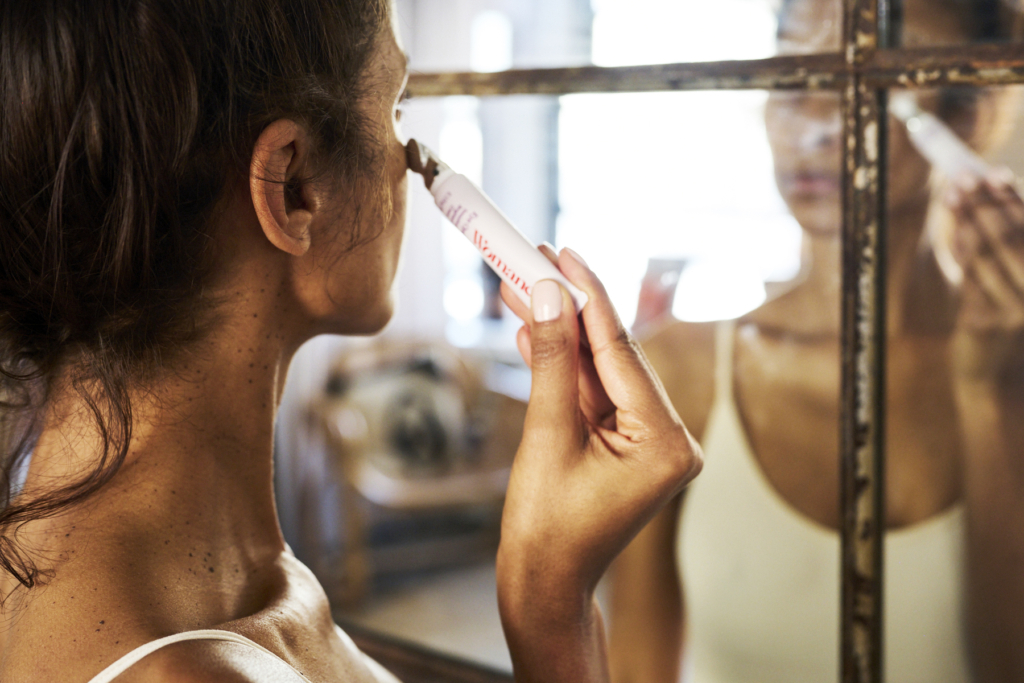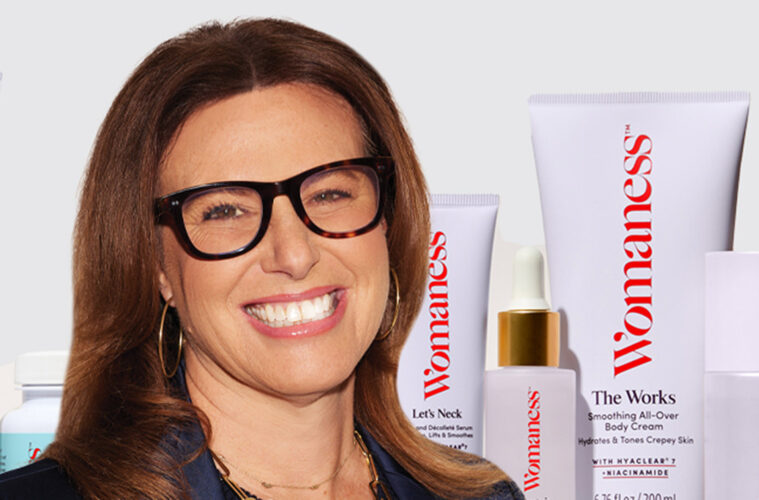With her new product line Womaness, Michelle Jacobs ’94 helps women embrace menopause.
One word. Nine letters. Women dread its onset.
Menopause.
The condition starts affecting women around age 50, according to the National Institutes of Health (NIH), and the transition into menopause can be startling. Symptoms like hot flashes, changes in weight, and irregular menstrual cycles have women looking for quick solutions. And as menopause ebbs away, women find themselves getting to know a new body.
To make those transitions more tolerable, Michelle Jacobs ’94 and her business partner, Sally Mueller, created Womaness, a line of products for women in peri-, active, and postmenopause. Their mission is simple: “to create clean, modern solutions to help her through this time in her life with education, inspiration, and innovative products,” says Jacobs. Additionally, it was important to the pair that the products they created were clean, vegan, and cruelty free. “We consider Womaness products clean because they’re free of estrogen, phytoestrogen, or added hormones,” Jacobs explains.
There needed to be a brand that not only gave us the products we needed at this time in our life, but also had education associated with it…
She co-founded Womaness after a career in product development for lifestyle brands like Joy Mangano, Real Simple, and Giggle. The Colgate English major earned her MBA from NYU in 2003, which helped her build a foundation.
“Sally and I are business people. We’re not formulators,” Jacobs notes. The pair worked with dermatologists and formulators to develop Womaness’ skincare line, and nutritionists and gynecologists to create supplements and sexual wellness products for the brand.

Some bestsellers are: Let’s Neck, a tightening serum aimed at neck and chest changes experienced during menopause; Me. No. Pause., a supplement targeting hot flashes, night sweats, vaginal dryness, memory, and mood; and Fountain of Glow, a face serum to address changing complexions. “[Menopause affects] women at the prime of their lives, literally the top of their career,” Jacobs says. “Their kids are older, they are traveling the world and running companies.” She created Womaness products to reach those women, so they can continue living their lives without interruption.
Jacobs and Mueller’s friendship was sparked through a business deal two decades ago: Jacobs, then executive director of brand development at Real Simple, pitched Mueller, a Target senior marketing executive, a line of products associated with the lifestyle brand.
When Mueller started having symptoms related to menopause, she did what most women do: made a doctor’s appointment. At that appointment, the doctor gave her a list of products to buy on Amazon, and they produced mediocre results. So she called up her friend, Jacobs, to lament that she couldn’t find products to suit her needs. There was “nothing that was clean, modern, felt like it was cool and sophisticated as she was,” Jacobs remembers.
Then Jacobs started thinking about her own experiences. At age 50, Jacobs herself was on the brink of menopause, and many of her friends were in the same boat. “We really came up with this idea that there needed to be a brand that not only gave us the products we needed at this time in our life, but also had education associated with it to understand why our bodies were changing, how they were changing.”
Women should have access to menopause education so they can know the scientific reasons why their body is changing, Jacobs says, so the Womaness website includes a blog with expert interviews and tips for mitigating symptoms. For example, the website recently featured an interview with Ekta Kapoor, an endocrinologist at the Mayo Clinic who is a specialist in menopause and women’s sexual health. “Women’s health has traditionally not been on anyone’s radar,” Kapoor says. “That’s why it’s important to advocate for ourselves.”
Did you know? “Patients are living longer,” according to the NIH, “and women are spending up to one-third of their lives in postmenopause.”

